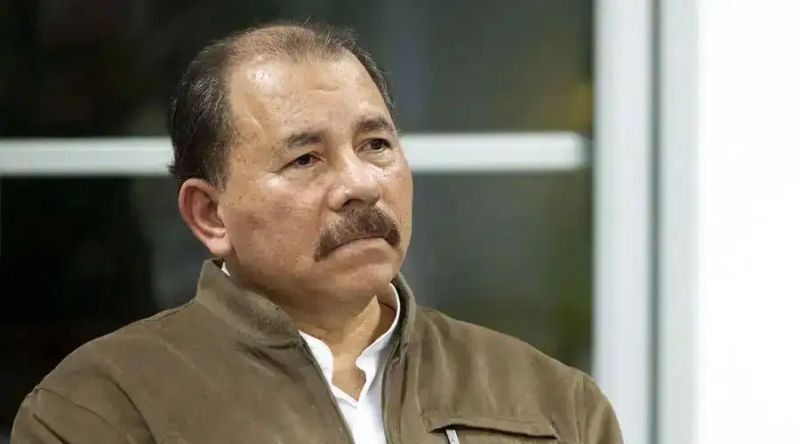5 things to know about the debate on euthanasia in Ecuador

 null / Credit: Shutterstock
null / Credit: Shutterstock ACI Prensa Staff, Nov 28, 2023 / 12:15 pm (CNA).
The discussion about the decriminalization of euthanasia in Ecuador started Nov. 20 when the country’s constitutional court began to evaluate the arguments for and against the request of a woman with an incurable disease who seeks to end her life.
Here are the key points to understand in the debate:
1. In Ecuador, euthanasia is illegal.
Euthanasia is illegal in Ecuador. The country’s constitution establishes in Article 66 “the right to the inviolability of life” and “to personal (physical) integrity.” In addition, there is no specific legislation that allows euthanasia or that considers there to be a “right to death.”
In a recent interview with ACI Prensa, CNA’s Spanish-language news partner, Pablo Proaño, a lawyer at the law firm Dignidad y Derecho (Dignity and Law) of Ecuador, explained that euthanasia is considered a “crime of homicide” and that the penal code “does not admit of exceptions.”
He also clarified that patients have the right to decide to undergo or continue with treatment or to decide not to do so. “If, as a consequence of this informed and free decision, the person dies, there is no penalty.”
In Latin America, only Colombia allows euthanasia. In 1997 that country’s constitutional court decriminalized the practice and in 2015 it issued a ruling that regulates it under certain specific conditions.
2. An ALS patient initiated the debate for the decriminalization of euthanasia.
On Aug. 8, Paola Roldán, a 42-year-old woman who has been suffering from amyotrophic lateral sclerosis (ALS) for three years, filed a lawsuit with the constitutional court to declare Article 144 of the Comprehensive Organic Penal Code unconstitutional. The article punishes causing a person to die under various circumstances (i.e., not first degree murder) with sentences of 10-13 years in prison.
ALS is a neurodegenerative and muscular condition that paralyzes all the muscles in the body including those used for eating, speaking, and breathing.
After a period of three months, the Supreme Court of Ecuador determined that her case should have a public hearing, which began Nov. 20 and could last several weeks. There is no set time for the ruling to be issued, and the decision will be made by a majority vote of the nine justices.
The first hearing was chaired by constitutional judge Enrique Herrería, who listened to Roldán’s arguments and her lawyers as well as representatives of the government, the National Assembly, and experts with different positions.
3. Roldán’s legal team advocates for a supposed right to “death with dignity.”
One of her three lawyers, Ramiro Ávila, told the Spanish news agency EFE on Nov. 19 that “Paola needs legal authorization to have a mercy killing, because if someone assists her in the death, he could face a sentence of up to 13 years.”
During the Nov. 20 hearing, Ávila asked the court to recognize the supposed “death with dignity” for those who experience intense physical or emotional suffering due to a serious and incurable illness or injury and who freely choose to undergo a euthanasia procedure.
The law firm Dignity and Law pointed out Nov. 15 that the constitution does not consider there to be a “right to death” and that an effort is being made to “oblige the state to recognize, guarantee, and promote the supposed right to ‘death with dignity’ well beyond establishing an exception to the punishment of the crime of homicide.”
“Instead of recognizing the ‘right to die,’ both the constitution of Ecuador and international treaties reject this notion and establish the duty to accompany and protect the incurably sick, disabled, elderly, and dying, precisely out of respect for human dignity,” he noted.
4. The decision of the constitutional court will create a precedent.
Farith Simón, one of Roldán’s lawyers, told the Associated Press that the ruling could create “a set of situations similar to those to which the norm would apply.”
“Paola filed this appeal thinking about herself and other people who could suffer similar circumstances so that they can, if they want, exercise this right,” he added.
Dignity and Law attorney Proaño explained to ACI Prensa that, indeed, the ruling of the constitutional court would open the door for all people in similar situations to “access euthanasia without legal consequences for doctors and family members.”
The lawyer also pointed out that in other countries in the region, such as Peru and Colombia, the decriminalization of euthanasia has advanced through the higher courts with similar cases.
5. Experts advocate access to palliative care instead of euthanasia.
Dignity and Law said in a Nov. 21 statement that the Ecuadorian legal system is not only opposed to euthanasia “since it involves forcing the death of a human being” but also to therapeutic cruelty.
Therapeutic cruelty refers to the medical practice of continuing aggressive or invasive treatments without obvious benefits for the patient, despite suffering from serious or terminal illnesses. “It unjustifiably prolongs life and lengthens the patient’s suffering,” the law firm explained.
Dr. Pilar Calva Mercado, a surgeon with a specialty in human genetics and bioethics, said in a Nov. 21 statement that “avoiding cruelty involves accepting a consequential death and the natural end, unlike euthanasia that seeks to cause it directly.”
Dignity and Law demands that terminally ill patients not be forced through unnecessary medical treatments to prolong their agony “but that, at the same time, they do not stop receiving the necessary ordinary care: food, hydration, cleaning, and a patent airway in addition to palliative care that, currently, reduces pain by up to 95%.”
The law firm highlighted the need to “reinforce the mechanisms that allow a dignified life for these people” and that they be “guaranteed the minimum care necessary so that death comes naturally with due support for the patient and their loved ones.”
The firm also noted that instead of allowing euthanasia in Ecuador, the National Health System must be improved as well as financial and medical support for the families of incurable patients. Dignity and Law also demanded respect for international human rights treaties.
“What international law seeks is to protect those who suffer from terminal illnesses, so that they can die with dignity, that is, by receiving adequate medical, emotional, and legal support that does not force them to endure unnecessary suffering or prolong life unjustifiably,” Dignity and Law argued.
This story was first published by ACI Prensa, CNA’s Spanish-language news partner. It has been translated and adapted by CNA.





